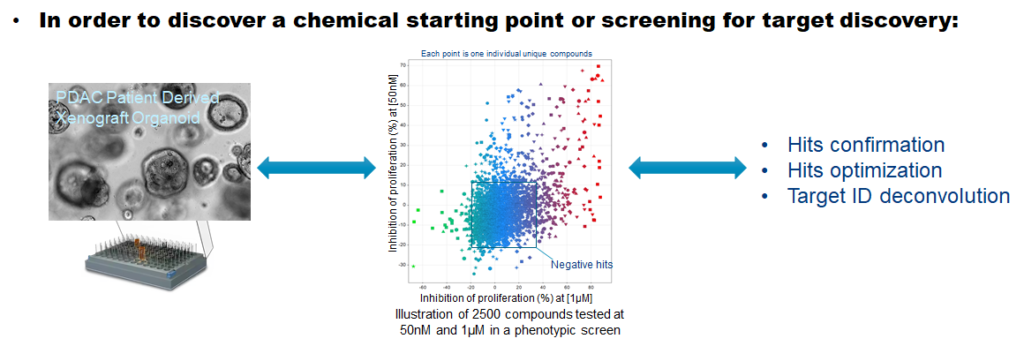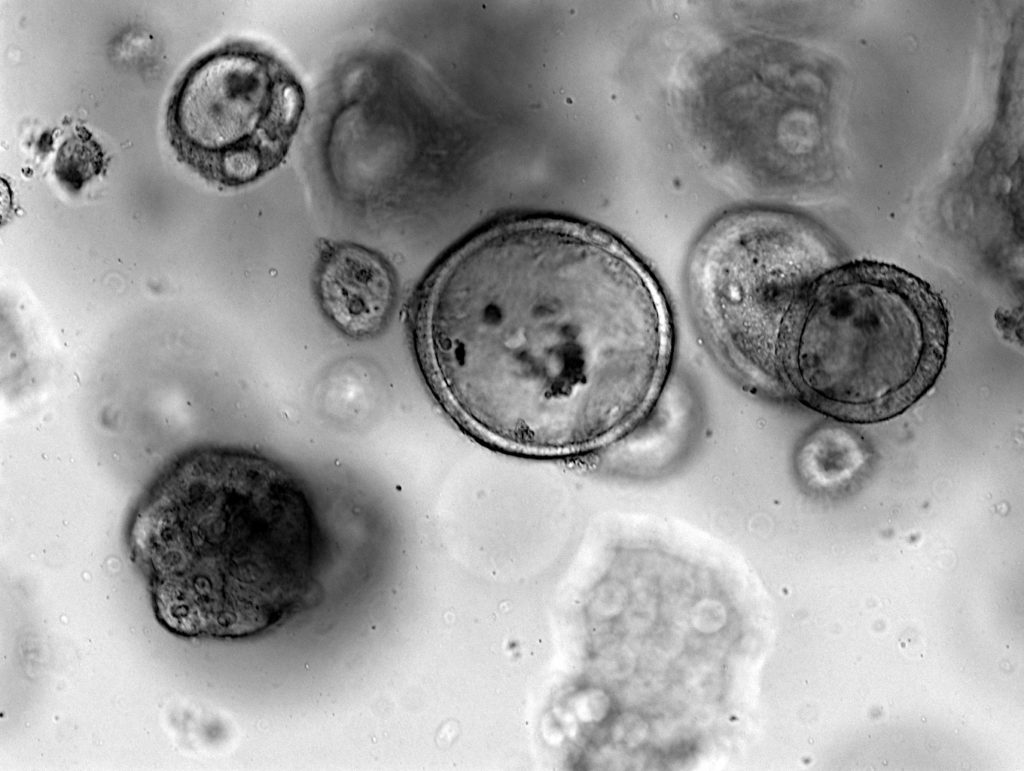


Patient Derived Xenograft Organoids (PDXOs) models
PDX models are known to maintain multiple aspects of cancer traits and model therapeutic drug response in patients with more than 85% accuracy. Oncodesign Services developed a platform combining robust in vitro PDX Organoid assays with matched in vivo PDX model response to run your drug candidate into into clinical success.
What are PDX Derived Organoid (PDXOs)?
PDX-derived organoids (PDXOs) are in vitro models derived from in vivo patient-derived xenografts (PDX). They combine the features of PDX models and organoids by generating organoid cultures from patient-derived xenograft tissues. This hybrid model involves obtaining a patient’s tumor tissue, establishing a PDX model in immunodeficient mice, and then generating organoids from the PDX tumor tissue. Patient-derived organoid models are proving to be a powerful platform for both basic and translational studies.
Organoid PDX models offer several advantages in cancer research
PDX Organoid models provides relevant data for drug development such as :
1. Recapitulation of Tumor Heterogeneity: Organoid PDX models capture the genetic and phenotypic heterogeneity observed in patient tumors, providing a more representative model for studying tumor biology and drug responses.
2. Long-term Culturing: Organoids can be expanded and maintained in culture for extended periods, allowing researchers to perform in-depth analyses, perform drug screens, and monitor long-term treatment responses.
3. PDX Organoid are better suited to large scale studies (testing multiple agents and combinations) than in vivo PDX models. So PDX Organoid are relatively easier and faster to establish. This allows in vivo platforms to be used for more focused studies, and results in a cost reduction in preclinical screening.
4. PDX Organoid can be genetically engineered using lentiviral transduction or CRISPR-based technologies, enabling direct and precise elucidation of the mechanism of action of drugs or targets
In summary, organoid PDX models integrate the benefits of organoids and PDX models, offering a powerful tool for studying tumor biology, drug responses, and personalized medicine in the context of cancer research.
Oncodesign Services develops specific PDX Organoid models to progress your molecule into the clinic
Oncodesign Services is a contract research organization (CRO) specialized in drug discovery whose mission is to contribute to the discovery of innovative therapies against cancers and serious diseases with high unmet medical needs.
Since 1995, Oncodesign Services has been developing models from chemo-induced syngeneic to xenogeneic including genetically-modified, immune-humanized and PDX in vivo models. According to your project, Oncodesign Services uses a combination of in vitro models and patient-derived xenografts (PDX) to overcome individual model limitations and produce unbiased data-results.
Visualisation of PDX organoid
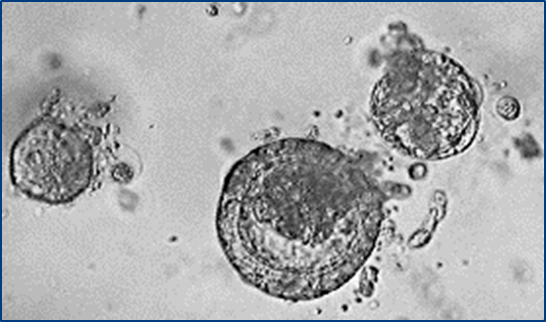
Triple negative breast cancer derived xenograft organoid
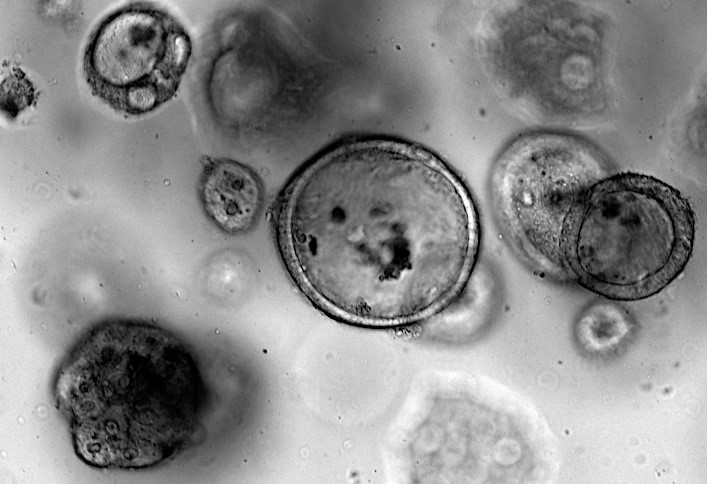
Pancreatic ductal adenocarcinoma derived xenograft organoid
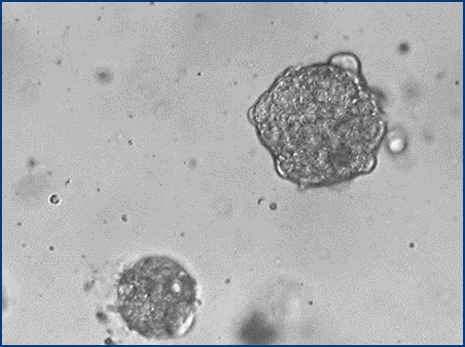
Colorectal cancer derived xenograft organoid
Case studies
Pharmacology on three PDAC PDXO patient
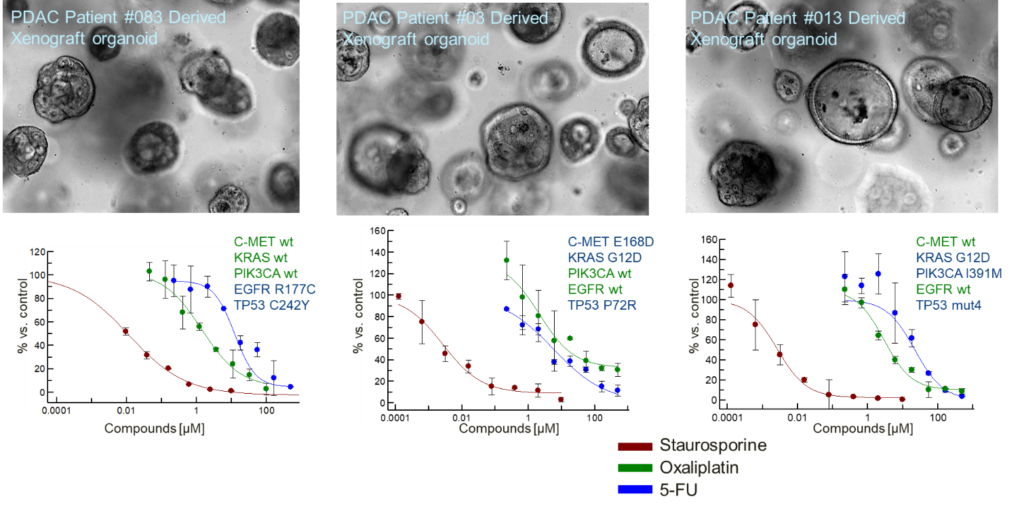
Observation of correlation between in vitro results and in vivo results using Irinotecan as targeted therapy.
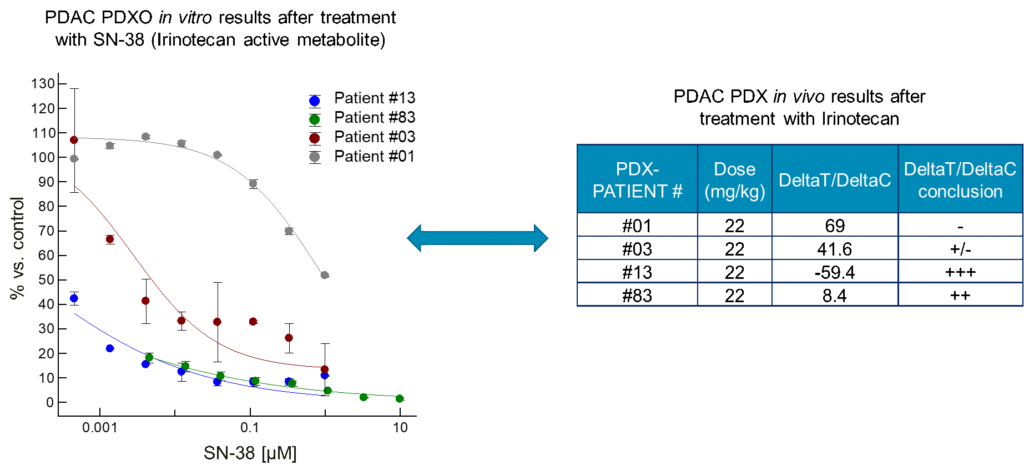
CRISPR Knock Down of a therapeutic target in PDAC PDX-Organoid
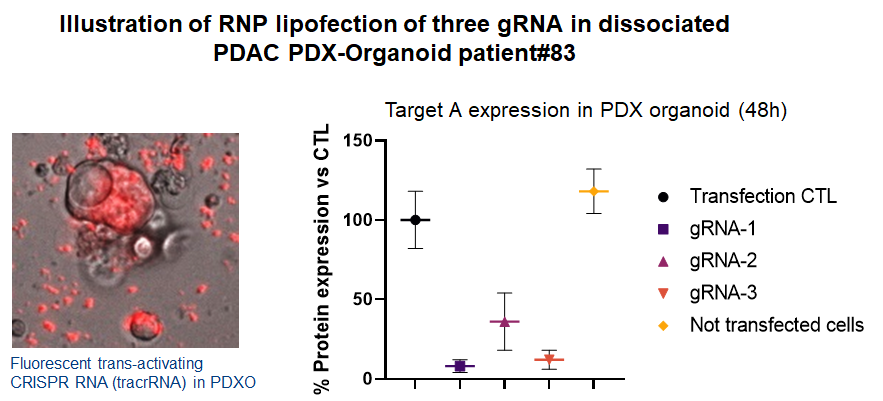
Phenotypic screen on PDAC PDX-Organoid
